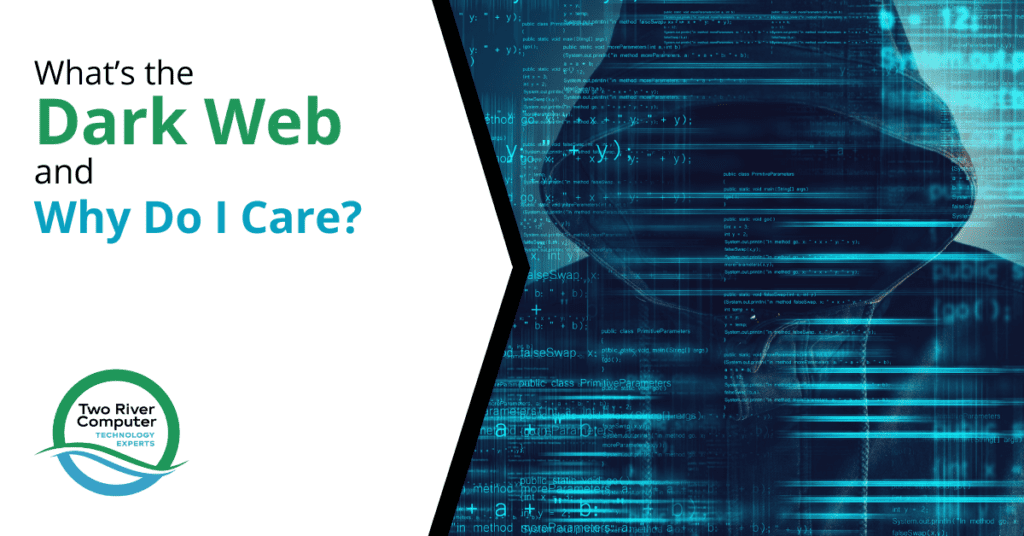
The term “Dark Web” is usually associated with a photo of a menacing-looking shadowed figure in front of the glow of a computer screen. It’s easy to infer that the Dark Web is something bad, but what does that really mean? And is it something you should be concerned about?
If you care about keeping your credit card details, login passwords, and Social Security Number secure, then you should know what the Dark Web is and what it means when your data is found there.
In this article, we’ll go through everything you need to know about the Dark Web, how to know if your data is for sale there, and the security steps you can take to keep your data protected.
The Dark Web Explained
There are three main types of internet or “Web” that make up the trillions of websites that make website design for automotive companies and other businesses possible, and other online accessible sites and portals. These are:
- The Surface Web
- The Deep Web
- The Dark Web
Surface Web
The Surface Web is what you most likely visit several times per day. It’s where you go to do a Google search, which may utilized this chatgpt for google, check out your Facebook page, or go to an online shopping site.
The Surface Web makes up the visible part of the online world that is indexed by search engines. It’s accessible via a standard web browser and can be visited by going to the website address (.com, .net., .org, etc.) or finding a page to the site in a search engine.
Deep Web
The Deep Web makes up websites that are not indexed by search engines. When website owners build sites or put any assets online, they can indicate that they do not want certain pages indexed.
The Deep Web is thought to be much larger than the Surface Web. It’s not necessarily “shady,” but it is harder to find websites there. You need to know the exact website address to visit them because Google and other search engines won’t have the pages cataloged. You can use a standard web browser to visit sites on the Deep Web if you have the address.
Dark Web
The Dark Web is the “shady” area of the internet. While not all sites on the Dark Web conduct criminal activities, that is widely what it is used for. It’s where criminals go to buy and sell stolen credit card details and other sensitive information that can be used for identity theft or to breach an account.
The Dark Web cannot be visited by a standard web browser, you must have a specific type of software to load the sites. Dark Web sites use “.onion” at the end and you need to know the exact address to visit them.
All types of illegal goods are bought and sold on websites that are part of the Dark Web, and a large commodity is personal details stolen in data breaches and hacks of computers.
For example, here are some of the going rates for stolen data on the Dark Web:
- Cloned Mastercard with PIN: $15
- Clones Amex with PIN: $35
- Stolen online banking login: $35-$65
- Hacked Facebook account: $74.50
- Hacked Gmail account: $155.73
How Do I Know if My Data is on the Dark Web?
The Dark Web is definitely somewhere you don’t want to see your email address or other personal details. Whenever you hear about a big data breach of a retailer or a hacking incident at a small business in New Jersey or elsewhere, that data will typically end up for sale on the Dark Web.
There are a few ways to know if your data may have been compromised and is being sold. While none of these options can search 100% of the Dark Web, they do visit the most popular marketplaces to check for your data.
Options include:
- Dark Web Scan: There are both paid and free options for scanning the Dark Web for your email address or phone number, such as HaveIBeenPwned.
- Identity Theft Protection Service: A service like LifeLock will scan the Dark Web for several of your personal details, including your SSN, as well as monitor your credit for fraud.
Tips for Protecting Yourself from Online Fraud
Ways to protect yourself from online fraud include not logging into any sites or entering your credit card number in a web form while on public Wi-Fi. Hackers often hide out on public hotspots and use special software to spy on unprotected user sessions.
It’s also important to include standard device protection, such as:
- DNS filter
- Antivirus/anti-malware
- Device monitoring for threats
Protecting your information is also very important because there are so many ways that it can be breached. Best practices for data protection include:
- Keeping your social media profiles private to friends only
- Using multi-factor authentication on all your logins
- Never clicking a link in an unexpected email
- Being wary of any links over social media or that you receive via text from unknown numbers
Get Peace of Mind with WebGuardian
Your computer holds a lot of sensitive information so it’s important to protect it from hackers. Two River Computer’s WebGuardian gives you peace of mind that everything you do on your computer is secure.
Contact us today to learn more. Call 732-747-0020 or reach us online.


